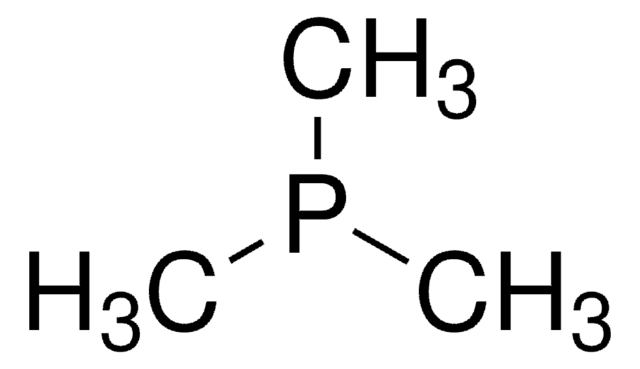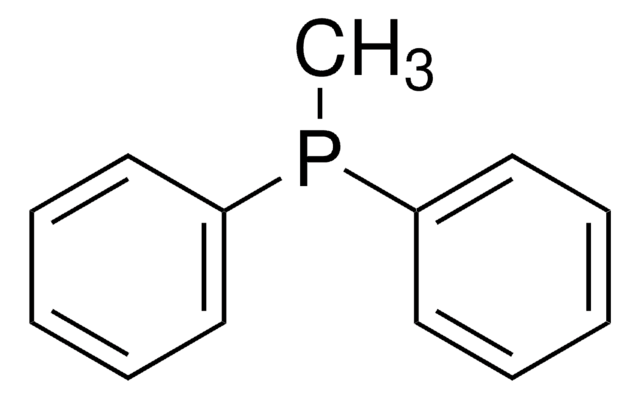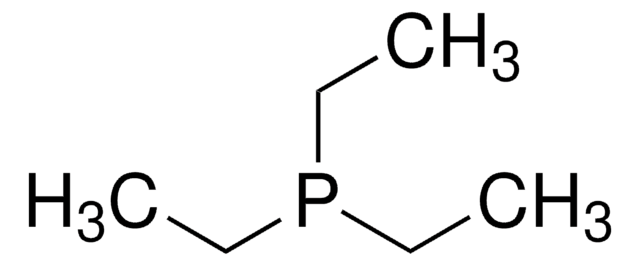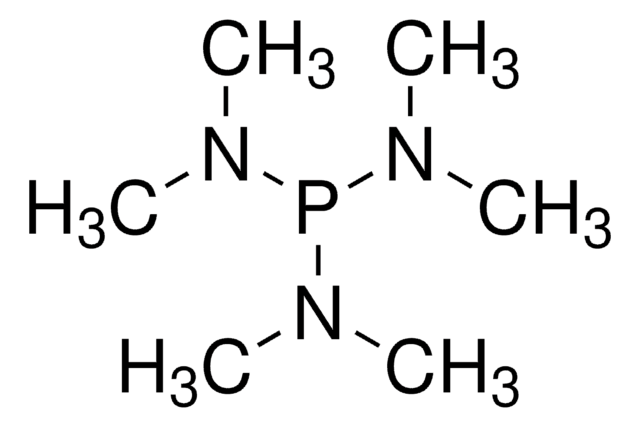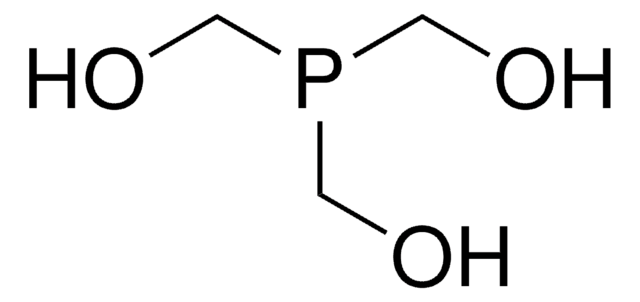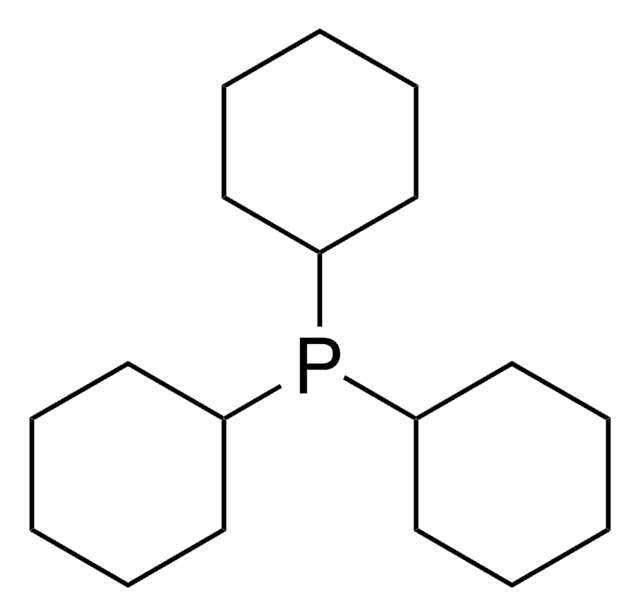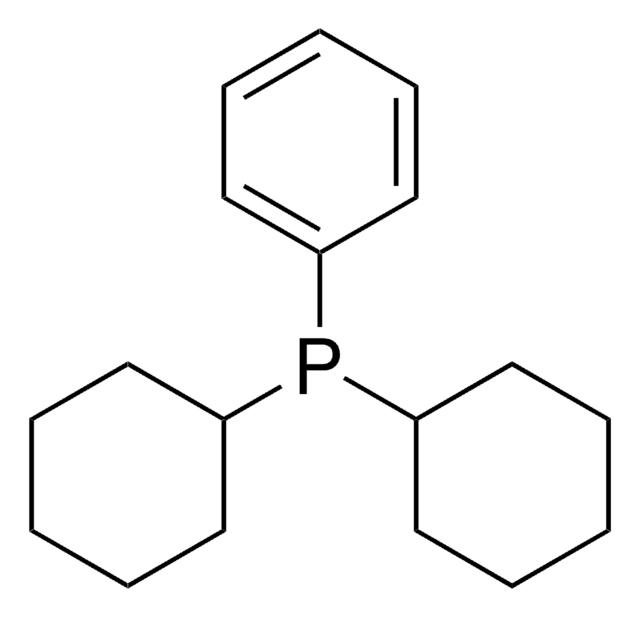About This Item
Recommended Products
Quality Level
Assay
97%
form
liquid
reaction suitability
reaction type: Buchwald-Hartwig Cross Coupling Reaction
reaction type: Heck Reaction
reaction type: Hiyama Coupling
reaction type: Negishi Coupling
reaction type: Sonogashira Coupling
reaction type: Stille Coupling
reaction type: Suzuki-Miyaura Coupling
reagent type: ligand
refractive index
n20/D 1.4584 (lit.)
bp
72-74 °C/12 mmHg (lit.)
density
0.801 g/mL at 25 °C (lit.)
functional group
phosphine
SMILES string
CCCP(CCC)CCC
InChI
1S/C9H21P/c1-4-7-10(8-5-2)9-6-3/h4-9H2,1-3H3
InChI key
KCTAHLRCZMOTKM-UHFFFAOYSA-N
Related Categories
accessory
Signal Word
Danger
Hazard Statements
Precautionary Statements
Hazard Classifications
Eye Dam. 1 - Pyr. Liq. 1 - Skin Corr. 1B
Storage Class Code
4.2 - Pyrophoric and self-heating hazardous materials
WGK
WGK 3
Personal Protective Equipment
Choose from one of the most recent versions:
Certificates of Analysis (COA)
Don't see the Right Version?
If you require a particular version, you can look up a specific certificate by the Lot or Batch number.
Already Own This Product?
Find documentation for the products that you have recently purchased in the Document Library.
Customers Also Viewed
Our team of scientists has experience in all areas of research including Life Science, Material Science, Chemical Synthesis, Chromatography, Analytical and many others.
Contact Technical Service